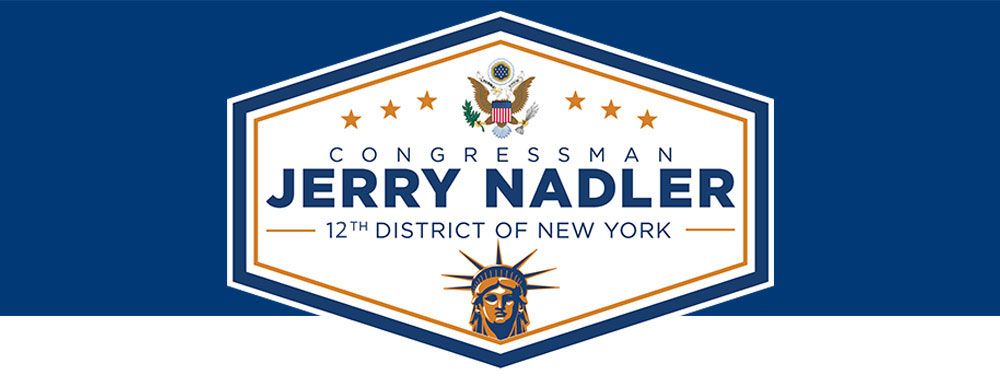Dear Friends,
Tax season is upon us again and this year, Tax Day is April 15th. Below you will find information and resources that you can use to prepare.
Create an IRS Individual Online Account
Over the past year, the IRS has rolled out an enhanced IRS Individual Online Account that includes chat, the option to schedule and cancel future payments, revise payment plans, and validate and save bank accounts. As before, you can also access your individual account information including balance, payments, tax records and more.
IRS Direct File Pilot Program
In 2024, the IRS is introducing a new Direct File pilot program in certain states, and New York is participating. If you are eligible, you can electronically file your 2023 federal tax return for free directly with the IRS. The Direct File pilot doesn't prepare state returns. However, the Direct File pilot guides you to a state-supported tool you can use to prepare and file your state tax return. Find more information on eligibility and how to participate here. The IRS has not yet announced the program’s opening date.
Free Tax Preparation Resources
- Free File
- Many people can file electronically for free. The IRS Free File program offers brand-name tax preparation software packages at no cost.
- The software does all the work of finding deductions, credits and exemptions. It‘s free for those who earned $79,000 or less in 2023. Some of the Free File packages also offer free state tax return preparation.
- Taxpayers comfortable filling out tax forms electronically, can use Free File Fillable Forms, regardless of income, to file their tax returns either by mail or online.
- VITA & TCE
- The IRS's Volunteer Income Tax Assistance (VITA) and Tax Counseling for the Elderly (TCE) programs offer free basic tax return preparation to qualified individuals. You may qualify if you are elderly, disabled, speak limited English, or are a taxpayer who earns less than approximately $60,000 annually.
- The VITA Locator Tool will help you locate an open VITA site near you. There are also virtual options available for those who are unable to go to a VITA site in person.
Once your return is submitted, you can check the status of your refund using the IRS Where's My Refund? tool. The status is available within 24 hours after the IRS receives your e-filed tax return or up to 4 weeks after you mailed a paper return. The “Where’s My Refund?” tool updates once every 24 hours, usually overnight, so you only need to check once a day.
Social Security Recipients
The Benefit Statement, also known as the SSA-1099 or SSA-1042S, is a tax form that the Social Security Administration mails each year in January to people who receive Social Security benefits. It shows the total amount of benefits you received in the previous year, so you know how much Social Security income to report to the IRS on your tax return. If you misplace your Benefit Statement, you can instantly get a replacement form with a personal my Social Security account. Replacement tax forms for the previous tax year are generally available beginning February 1st of each year.
IRS Penalty Relief
In December, the IRS announced that approximately 4.7 million individuals, businesses and tax-exempt organizations that were not sent automated collection reminder notices during the pandemic will automatically receive penalty relief. Due to the COVID-19 pandemic, the IRS temporarily suspended the mailing of automated reminders to pay overdue tax bills starting in February 2022. These reminders would have normally been issued as a follow-up after the initial notice. Although these reminder notices were suspended, the failure-to-pay penalty continues to accrue for taxpayers who did not fully pay their bills in response to the initial balance due notice. The IRS is taking steps to waive the failure-to-pay penalties for eligible taxpayers affected by this situation for tax years 2020 and 2021 and has adjusted eligible individual accounts and business accounts. The accounts of trusts, estates, and tax-exempt organizations will be adjusted in February and March 2024.
Keep Your Personal Information Safe
With tax season starting, millions of Americans will be targeted by tax scams. Here are some tips to keep your personal information safe and be alert to scams this tax season:
- Taxpayers should be alert to potential fake emails or websites looking to steal personal information. The IRS will never initiate contact with taxpayers via email about a tax bill or refund.
- Don't click on links claiming to be from the IRS.
- A common tax scam involves bogus threatening phone calls from a scammer claiming to be with the IRS.
- However, IRS employees will NOT:
- Call you with threats of jail or lawsuits
- Contact you to demand an immediate payment
- Send you an unsolicited email suggesting you have a refund or that you need to update your account
- Tell you that your Social Security number has been suspended
- Promise a Social Security benefit approval, or increase, in exchange for information
- Ask you for credit or debit card numbers over the phone
- Require a specific means of debt repayment, like a prepaid debit card or gift card
- If you receive a suspicious call or are unsure of the identity of someone alleging to be from a federal agency, hang up and do not provide personal information or payment.
- If you are an identity theft victim and your tax account is affected, review the steps you need to take at the IRS Identity Theft Central.
As always, my constituent services team is here to help you. You can submit a request for assistance with an issue you’re experiencing with the IRS or another federal agency here. To receive more updates like these, click here to sign up.
Sincerely,

Jerrold Nadler
Member of Congress





